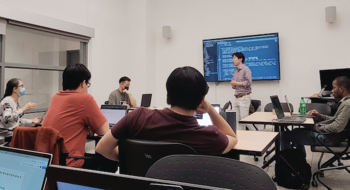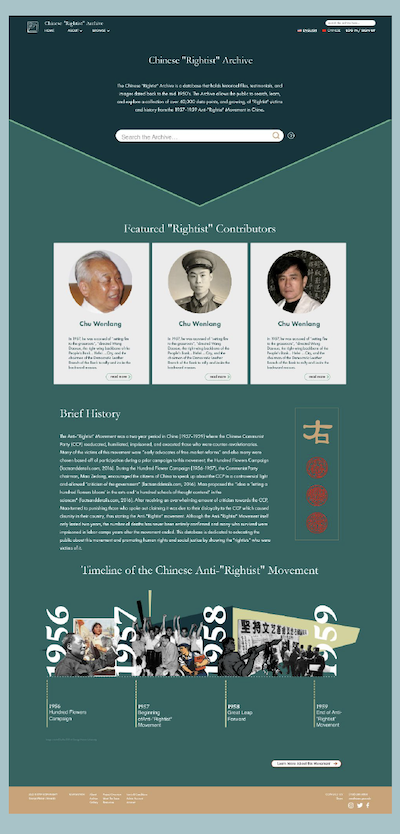In This Story
This summer, George Mason University students designed and developed a pilot web-based archival application to organize documents relating to the victims of China’s Anti-“Rightist” Campaign in the 1950s.

Six undergraduate students and one doctoral student participated in a Summer Team Impact Project to build the online platform. Using the pilot application, researchers will be able to search extensive archives relating to names, birth and death dates, and biographies of individuals labeled “Rightists.”
“The documentation hasn’t been easily searchable, “said Myeong Lee, assistant professor in the Department of Information Sciences and Technology who co-supervised the project. “This online platform will allow people the ability not only to search through the archive, but also to contribute to it as more information is tracked down.”
Predating China’s Cultural Revolution, the Anti-“Rightist” Campaign was launched by Chairman Mao Zedong to purge “Rightists” from the Chinese Communist Party and the entire country.
Beginning in 1957 and lasting for about two years, the campaign may have affected between 500,000 and 2 million individuals. Targeted individuals were reeducated, humiliated, relocated, or executed. The main focus was on “intellectuals,” which tended to mean professors, artists teachers, writers and doctors.

The student researchers presented the results of their summer efforts online in August. In the presentation, the students describe how their goal was to research and create an online archive that was easy to navigate, beginning with 40,000 documents.
“I am definitely glad I participated in the project,” said Weilon Price, a senior majoring in computer science. “I learned a lot about web framework and analyzing large amounts of data. I also learned a lot about teamwork and communicating effectively with my team.”
The student researchers, who had prior experience and interest in software design and development, received training in the areas of data analysis, computational methods for processing large amounts of information, and software development.
“Working on the project was a good way to spend my summer,” said Joel Adeniji, a senior majoring in computer science. “I got a chance to help make sure this part of history is never forgotten.”
